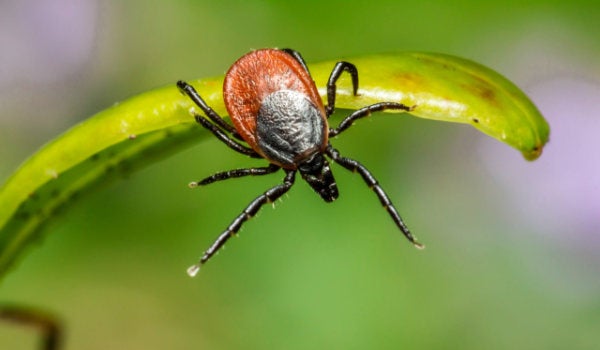The current research capacity for responding to vector-borne disease threats in Rhode Island is largely within the Department’s Center for Vector-Borne Disease.
The Center’s research focus includes
- enhancing disease and risk surveillance
- improving diagnostic tools and capacity;
- elucidating vector/microbe and vector/host interactions for the purpose of disease prevention and control; and
- developing, implementing, and evaluating community-based disease prevention strategies.
Ticks
We focus on tick biology, ecology, and control. Specific research goals are to
- identify factors determining human tick-borne epidemiology
- formulate novel vaccination strategies to prevent tick-transmitted infections
- find compounds from ticks with potential pharmacological value
- develop biomolecular assays for tick-borne pathogens
- discover and evaluate natural enemies of ticks (especially entomopathogenic fungi, nematodes and bacteria) as potential biological control agents
- assess ecological effects of tick management techniques and to develop management methods that minimize negative environmental effects; and
- gain greater understanding of tick immune mechanisms.
Faculty
Professor
401.874.5616
tmather@uri.edu



